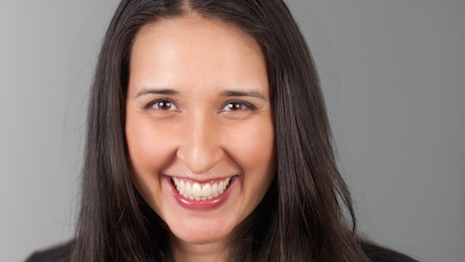By Safia A. Anand
By now, almost everyone has heard of the infamous Fyre Festival, which was scheduled to take place in late April 2017 over two weekends. It promised to be an experience above all others – an immersive music festival in the Bahamas on Pablo Escobar’s private island with famous musical acts, supermodels, influencers, wealthy millennials, yachts, beautiful beaches and gourmet food. It was advertised as the “cultural experience of the decade.”
The festival’s founders, Billy McFarland and rapper, Ja Rule, promised a once-in-a-lifetime VIP experience on the Islands of the Exumas. Guests were told they would fly in from Miami on a custom jet. Ticket packages ranged from $1,500 to $25,000 each, but the $25,000 tickets could only be booked for groups of 10, so in reality those packages cost $250,000.
However, as we now know, the festival failed miserably – millennials ended up being stranded in the Bahamas with no food and no water; several lawsuits have been filed seeking millions of dollars and alleging fraud, breach of contract, and more; criminal investigations ensued; and Billy McFarland is now doing time in jail.
To date, two documentaries have been released about the failed festival.
Playing with fire
So what was the allure, and what can brands, advertisers and influencers learn from the mess?
The Fyre Festival confirmed the power of social media in today’s world and provides insight as to important issues that need to be considered in light of today’s realities.
For instance, the Fyre Festival showed the world what brands have known for some time – millennials are craving experiences and the Fyre Festival promised them the experience of a lifetime.
The Fyre Festival also showed us the power of advertising and influencers in the digital age.
In the age of social media, consumers are quickly scrolling through their social media feeds, and brands need to grab their attention fast.
The Fyre Festival did that remarkably well when it had more than 250 influencers simultaneously post the orange box with #Fyre Festival. Consumers noticed, which made the ticket sales so substantial.
Would the Fyre Festival have sold as many tickets without the promotion by supermodels and influencers such as Kendall Jenner, Bella Hadid, Hailey Baldwin, Emily Ratajkowski and Alessandra Ambrosio?
Without the now infamous promo video promising the party of a lifetime, would people have wanted to attend the festival at all?
Making a hash
Many of the celebrities and influencers that promoted Fyre Festival have since received warning letters from the Federal Trade Commission (“FTC”) regarding their actions and even become the targets of lawsuits brought by attendees of the festival.
Specifically, the FTC sent 90-plus letters to influencers, celebrities and advertisers, underscoring their obligation to disclose material connections between advertisers and promoters within social media posts.
Namely, the FTC stated that including “#ad” or “#sponsored” would sufficiently disclose a material connection, but “#sp” falls short.
Most of the influencers who posted about Fyre Festival failed to meet this standard of disclosure, even though they were paid for their non-compliant promotion of the festival.
In the letters, the FTC made it clear that the burden to disclose material connections between promotors and advertisers affects both the advertisers and the influencers themselves.
Moreover, many influencers were named in lawsuits as Jane Does, brought by disgruntled attendees of the festival, claiming that the influencers that used their social media presence and large following to promote the event through paid promotions failed to disclose that they were paid to post about Fyre Festival and thus violated the FTC’s Endorsement and Testimonial regulations, and in the absence of these misleading posts, consumers would have been less likely to purchase tickets to the event.
These allegations are framed as claims of fraud and negligent misrepresentation.
Comply, not lie
While the Fyre Festival is the extreme case where its founder allegedly defrauded investors and employees out of millions of dollars in addition to the more publicized debacle that was Fyre Festival itself, the failed festival illustrates that brands and advertising agencies need to be extremely careful when advertising their products and when choosing influencers to promote their products.
Brands, advertisers and even influencers need to be sure that the advertisements they promote are not false advertisements, and that influencers are properly and truthfully promoting the products, including using the proper disclosures in their social media posts.
A quote that stuck out to me from the Netflix documentary on the Fyre Festival was when Ja Rule was talking about the festival in its aftermath and he said “that’s not fraud, that’s not fraud, false advertising, maybe – not fraud.” This begs the question, did they really think that if this was only false advertising and not fraud, it was OK?
The Fyre Festival illustrates the immense influence of social media on consumers today. But the aftermath of the festival also illustrates that while brands should certainly use this powerful tool to their advantage, they need to be sure continue to abide by the laws that were enacted to protect consumers from being misled.
Also, advertisers and social media influencers need to be aware that blame can fall on them too and, as such, they may face potential implications for false advertising and failing to comply with the FTC’s endorsement and testimonial guidelines.
IN THE AGE of social media, consumers can be influenced by a single post, but everyone involved needs to work together to ensure that the post and the message surrounding it is true and compliant with the law, or all parties involved could be named in a potential lawsuit, receive a warning letter from the FTC, or at least receive negative press – all of which we have seen in the fallout of the Fyre Festival debacle.
Safia A. Anand is counsel at Olshan Frome Wolosky LLP, New York. Reach her at [email protected].
{"ct":"oOYDTgk7GoeX1UdfQUk8VFPnqWE53eLjeXw9Y1zh1UXS8attb+OjyUdmmQ5dZSp\/Hu\/wK8BuzCkfJcXREDp7pO\/680NzyA6eCOMit73PRMwSgpJoxIfI+Ibm9OFVa4T6yi1g9rpbc5wz1fwd\/UJb95WBsM9gz84OVzxxGmyPB795i97gFvQ2Js1DgATN+yEBZ67KAbXpEPS6i4ir7m5ebK4X67+a2UBHf7JBVj0+xzAritTrLe7UrgNQpNsWAZf3U9qCXQ7iQBPNNYxEs4+JHUBGqikqd9O\/XyEvL73pvevd0gwxljAgrG2f6x4SCUYaADNHpZAtHmB6EkHSI9xjDheMvDiW4ZCEw52GnLM8wm2tWYvuLgogRhYRQNp6VCkU3YjiRuA0kxnwoyM5R0kg086hcWHXUXgi2DaEVGdF9Z6cBUc9vqCHpoXdONdXNpaeVhthXX7gU2qiDaF0NrNguuj\/T8agxqVZ2JEen7jj3\/ts0hutZLJXxH3N8O7OQqwMMsj8H3tgUAdf9CA+nAgZUm9\/UT5LsTKkQZmSh7X0FCyPQmp\/H+DcmKoXj9Xb0RascH5vK6Jge7SknSX+aqhlZrSSfaFnolTZ5C7qFaIEIdsduHbSzDxr+ku4dZAXOVjjvQ0u1SUchyvyHE29mmCgA9J2gT77ex\/PU486Es5b8JWWSFlA8C4auql1oowngQ79n\/0XKDg3+Rm1JqtJqXxznUTG9xmLPNHzc8EuIHX1wtzO7bqeC3AvA+r9orW18EgYRpWNAZQRU+1ST8Q5HgLQRlM+Z4cbITxCA1xP9LlzI72s0zJIkHE4RDgqLbVj\/Avs3\/3hq4VAaupFkVnZgbXR4r9Wum1jtaAfkmc4cDdjQLftsizcJtasxnDqkQkMOHnTrvAPq83skgnlBMSCGHr5goQ7ma4WH62KnatMWiGwfjPr6ohQoHLaDMi42U\/pIsrQgFvF52lcCxlk7evKUvCY8u8jd5caVigOL1KRNwpOb+HgL2qih+tlWTbl836\/woArgEJrAY7Pe9dkLwfy7Rt4yH16vrzurYAzRzTd7ddiBO55EXeb7AIsObdmKkUWdryD+oQFn9RbBk80Kp+5wvWd3XtfpqFmsfDPe6SgJA6j1ycV8rnjbSZFhaVUZRXmed4QBjqNAzpIbSTIINhm+umiO0ydqETh2uDl4t6Bhtov213G7anncjicWEcYyCWAxCUnCZVJkofq6VnZkcvs07Li6CN+AFixxInuOkwZkokGm+ktVYsHtV6oQtKXnJJbcdAUMg1ZfLzR5Dj5yUSWw\/4KRS3iLJD53LQ\/oqxtKX72vNXDWG9kR2zZ6aIGokS6+O0bF8YCsI+ehDA3pbjCu\/Cs47lZlGRUHnKuJvgKHdI++zDeefXy\/aVLDDG7psmOeMjfQc1nSfEKFTEcAy0dmp2ZkyS+x7PywAomM1zMPLCeSvpfWUwiNtnBs6C\/UU5vS9fEV\/v\/VlkWRaud4X7h+sj48H\/c1VbvflcOtqioSf1\/FdQanMkfCdpLh\/k0fLA3QhpB8Df2xQi61puv1zwEsZlohoK658kQw+MFF+Cmvsdy4\/YJIbhKYWg2k6ayTzwUjKxVta5Oh+3GhGBDfo9AqdFxG2AzLKJboTOP5zXD0yexrIOnJTTt5B4W9APeyKeiX4VH7MdOwDZ8INhVX6S3fyIZsnHIOI35O72IXJDXFp+QDnXp6Zxaa\/vbmNBZLhtqH9uUdIcL67+Wn53gY3n3d8OlfYsRYvo4ehiQLuMxfRLcfElxs002pKPvcnDHUxrazjGM6zY6ZsClP4+PATBeH3OHhOc\/McjoHQ7ctrhwrUzX4Bw9aSeHF4SF3+YuVph1tRtyzP5ferG3yXAvrDLv+S0uqpCW7H9z2GSFMGZ2SkStvhqo4aGusV5uBNOTa4Xh\/pg4CwqvPEmpGQQhSQUYdApLXwAHxcaTAfxIMdm3oJd6\/HRLZQiGDn0a3AmXgH1mkfmkNzEj60qJuSPOHPfmTqIQmgYkBof8qVcUvz3ZOaOyfMicQUI8ReNj0UcAAM\/RxR8bJWjTC9aQgbuPyPeFUVsR3NwzA7qUJ6Rn0jhd1lewS31fXaEZB40fi89hcu6VqQ+Oqcs0HtZBKjIRe0GuQHtvUpkDeXtG\/kpg6IHiibqVscLiIfPO04w+Rv0lRn8bm3OaLDQC7GWp3y\/cD3QKSvT5hES6xeKby3YAU5KZFX3xLGY6IRzUzHorpAglUEeYnMMN2WFTNChn2RGW5FBzr3Xv8X8E3sLf5SqcoaJsX+g759wPmAickYyVg3T4Es+AZLgMLXAmidRVQSeABkUxkKFkm8xw4PZhOjXp6cqc4QCINmMelalpmtYzJAykdFJtMea8yyzQ+EkDvld\/80NhIwvWM2z71hshoo\/Nqn3ajObetAyZ916Uer4YpjLrAMnzPZsaIOHUbBM8iwc04shXCejppFJu9gkyDtb3A0yINqRa6tRG9TEkXDmKrl+W0WjuPMKX5Mqf+xB1G6\/571dLS2H8A0zJIAbH7711GB3ohe6qmO5a+I5x5tFCF43QzVI8NcxcjzS6v0eyaM68oO9E7VNR+PholTAVv\/NOxJp0Uo7\/+M4JsLPYzx5mSuH0Ng5C4bYU\/tOaQMcTTAbx\/uwAKMP2H6CnBBsJGEcLK3y8jIRn2dKbw7mML2eqTvT7\/8vhy7zw3dMygij6cEhtGL97BEdaLMHSkrhOeVqtNC8TeOKuZW0hpXGYssKQJd52SA0h7Y9iPRLm9b0Wy0UTbz\/R+nvQcM6hPnIknKHRj3OaRD3cqDhHVrbwtQbvaWD0oMEEUXwInPJlDbdvc9cd806JqHg3esrGwfHVDQIagJ0IXaRcoeXMSts4ndSK4fnV4Zxo0po02Vj9bzFFGqcctggrl\/Osg1vYIobGz+2pPkwh1WppDd23APvouknMQPWS76gcXnlSq3FXjAt3uWpdPlVwXznmtsMyn1LYpy8l67XvPHLsxf05Mwv8qRSKqi1xA0AYDdEDrMojTBgC0fYC1jjF4vQA2HRQk7VGrcAWLoZmpaQh4XCp7le3745JnIHcNazkEGAhN67Aa9BOhjZFrOg10KaDh4NiOVuVdnmyR9cnDj304ICpMm8ODI8F9BmkexgXiR+0qPpN6F6UAjxqPxjXCS0UjT3SYnbeuKRbWvvDN7KqitbvlXLtTKL4\/YLQ3ivGTy2x0HzNtFGv5VtjE2ZRxoVkHzvLGBHku5RHi9N5cK9FpALrBOX2\/ER+9yJ3rj\/eKtkPYEB6AZAQQTvpohRHul3wTmtF21Bh8N4Nm76t\/X0lm9F0Jxr5BB2QB8Baf1QhPi7cXo6lzFw8hUo36NRnApIgUiNtATjfPFRbqpeAL9RxrohN1IqsVJcngJvAIaY09cayDV5dPK6yI+KUUCG89yx6HkZGpBHwYaQNlDfDRsAYKPZbWQTQRi49xNd9R5if01TSxC9mE0luRwjNgr+yooCxoiFlxyYaF6QnGYZ1R8Xoz+8jWS9kPZ2A\/w0Spr6WePVkSZa9UGsQdgGxIOaHSIpmtJtxqmN8USXsUcmqCvTB40qPijm1g+8mlUxTHsgGkV2bE2HNXCi+nhPN6tX8macRLsR52Dmyymu9zEhjYVsPNNPa4KtBZJzuyYF1gZxDqKm2lzom\/TX90fAMPVUTY2JV+\/k4pagc75okzqgEEhqunx1huBqqW97ZIoTvIGXYLl\/EYKP2VLSA3xk1XcFfBxBCaVR7\/iuXUNls+PRnc4UcpK14d\/BsWfbElq3d6izNJrVIynailT4vKfgUD3+ge0RQ2oUQ7wqksIWE9KqCCAhBUgaz3u0o\/um4ZyNoIlh5ZVJr27D4ErPeHSr0KX6A3n6G2RGVaWo012ansOyh81yOAqPT1ZOMFAPixqFagSz\/ubO7dkGJWHIer9T7MjO4OVS6IRV00MtJ+gXc6IOrKdpHkPB3Nj\/eaUkfC96KtJtUzFE0v063Dqg64Fue0MjLHRgHRqgjnDzVM6+YTmO9xIaGTBnDzoIQs9tDoFj9BXH04PVSYZWSuoRqGvZ2aThf3b4+JBHkCcIB0sZbUenwqT5Tg0WYjE8E2xssfxQHR2ooJgqOR7TiBFliEvcNuPcC\/ltSqjWOMAZWaSEj+gMHunk7YoCMh3na+jDezQ0EzRtTz6rdsur4l5GIKVUrpI99c1JtsOe2JR\/Ff6Jvts2MjbkUX1lrDic4tJRGfw16DB\/MDA9QN\/AvEyOhty8yqu\/Zc3ZIRigd5H8u5yU1ylAWC\/pPYFaEAJ6tdGY24DzzObjkZqz3rOgtktTPBq+G\/4Kj6zQLJU1jQl1FsHdmGdVVFB1rf9j6z5NxAVDpW2eynJtdtcpBw\/2Q4HWoSklAFQMz\/lGzP5D97VFvWr16LINogvLsqIPh+2mPzE00tVgZHi0BT3LjjJ1u7LhwYYeikodo2OPLeYyX9WSV0gXqAR5CmvgYC7lUSR80xtZrmpbXxGBWo8llu084QCIUBu2eQqM2Byn3aFjNxvxmv02wxnjrh9kJ9weL8+zXeVvL9IAzR3wG87fHMBMbxa81Dfs20ssTKeTmqaam6D1qgYVpYQo5Kj6hH+\/ZlHWvwKEUNoVEpVrUDQZ\/NIFk4\/jlHpWAXrVkLgGcnwDXXGzwFqUjDCrfVO\/nsq\/UVhDBB46vl0D\/+I1OVZk58uaMpW4hH5lvmEYLxezphsX1zpt2nrOW2VLXjEhwKMBdGdkAZRvYVnRMmqMziK2yontDFtlR7uODqiauxwq6mUsg8IGR5bAhQbnzDyXfLCd4PC53DbHjvEtDh5Vb1cuvzRLdCy1AiZW0TzN87A4OJOezoVWXpKAB7rY0AENEqL7g151VTNkiLXXC0nsrPhp+ztts3+yFe9qL66WFbLx6X6lM7irg1zj3MyhkCAnoDXYk6zoi1MgNSh+cHtnysnhj4zWZY22mLzX9sFLXRtuGoD\/HVjkRKJFgkJIshldOYH54VNEJd0M9587WrRwkNHZTQQsUS9A5zRU1UEpC\/fe\/d6wXtZOquV93aQblznqM2eMBwM6AYxA0ZILRTyGlDIkF5QxR9oreiJLPS+u8KrfxS+N8kl8HmA\/NM8jX42K1mo0EZu54hpz8I9\/tQnSQ42i3bm3QDdtwieTIuBX4IHq8WyUXDoB3MVvlmDYGe8gJ+mX97JzXnhwSa9XaRK1Pzvt09n\/KvUw+Z\/1A8ay0nsN04ktU\/5WZgmo8yjmQAtGU4jLS0S8dI9rmUa36whdxhrseDR1JcbhsRBrVNQq7DDpmYraRJVY0VaRYJYn5NcFs8WedXHw2EHOvY3iYGDVZt\/k+qtB1OLNdYDD\/qqTQA7qhwzfs8JCwhZL3VPwQlQcUB4+010SQM87SJhyJ2rvXCcfCLWyzOXn0tOMiNjDJXkp8DfEpiUv6Rla7CyxSS5SMY7n60\/J91qX\/J1MgHq3omKzzhawmmo4mlsvqvgjlfKddlJj8cucI+dm6Oida5yAe1FJLA0QIXxlgATaiFi5+zhNmajrjYulyapbCOJeYNF\/K\/ouvJdHGHJuy7vGPw5RKZqbk60Lt3K2bt7fDmaifMVtVJFn6NsmwIqLfp7nXZK9hYuQAmuCwMuoMhc2QX\/HdM5Z3+hmSCAj1R4JllDt+wSEQlY5mHwj520eXMwJCm9418WXLfGeJydoIWQg2fIwChMqQYv7pr08iUKEcal\/lWQsrelq38dwBdOsaAOJuyeomHbI67MtFDqLn8lXoKqsdrfAZDVwA3abnlYNW\/3TKTgNJbdKfzsz00siYzs+\/OJKwOOFhZf4cI+8Wpfy7gKb8VP3NBJJoMbYdOIRPSZabdp92jO8ty5MMAVRI56G2s1gZhMdYxXQi1+ldh51FxsWdgN3SRpjqJmUJ39EE17KS\/2QFHeU5uKCpulGDrBOGTAwCuA2F\/DA9hIRnqmuB1fhx1ZVTSvW2WXStHmTuzkEEK0OX3YRDoyLnHwVOYfw6mv\/ooWeFXcU3IjW6uog\/u2L9mduXMWnE6JaM0pQzHINv9WubWpgr9L2eov7q5awBqilP58g0y+y2h1nvSzvZd0bCGGBtr03L61xiePO\/QGrGXSO8v0ytHOR3YEdUF7qA3NaVtkOJ2RcCdL7rs00+GJSNg2tUTREetxsVgoieW4OonEAJHxQh+uGBx3k9GSFsqoM+kssgjk6wW+tYPlhoBYh5aVX7F8Zcu0lWCYDHpR1fjvzS4HmtIslLPBIVviGhvwZXb64S1VRq4LR\/DXIdhZQv8TSdfT\/YxbrezOIzv7UBZPnyJcrzL9p7nkfbM8mOY+YAt01MJYv+rcX7F5Y71apr6mjiTdMjgxXwTLH1Ff+uUohCKEcLkoI2NNFThDYo35w2K8jwED39iVM3MzDpkJdZ57HaMHY87ypW1ZG3i1hA0rPoiTGjr+j1v2nKTzNau1axGV7n3nygQsDc8aQUcRp23kzL4HHb5EOc1vPsi7FQ78KNRWeOJC1w5wvanHBU6a\/xc1Mdmq7Ox8j3PWiJ\/Gcdy+bnNFbtuPtwVgnMne\/RlJDGTOkxuzt2XARvQHYyukpyJ2Ii4VFOy+8UN1kCobrdFDuV5PxguQnHKLc3lW1VtHsFqtUaSYyQsEOgIE09nxxgJ6qT0eCVnD3cWdH1B7\/+4WiQAiBk79uTyS5ny7fmi0+uLBbgPnsdMmKOMRBiFv3Esn9avbWANkoL\/mOWQ\/OVZCPbIkV7AXkawjS8fYd\/DhrzRdSqC1pp6+AGd1sstHCB7U4NajpuDIMLO5om0zLst0pkUuthmaJxoTW7F8NfXbpb6sa\/UicmxkThyJxC0HZ2Dk6q1Lmh9VCHS9GiYlTucL+cQvPXljf4Y7app6cV16iOiR9l7R433jxqzzJHZD1urNTybrmpJgEkcIgL2g06cOXRCWgXOX5xz7rsxelkovJ8FdqChEuIjVzYmZ6yhqzz+MbaWPey0\/CNJpsvgXKI7EIyYc2jIWChRdp4MOQtJmm4ascEwTamk1Q7UQUooRuGfc2CrkhF20NtLstQG28K1cYmLFcm7OE6up1uqiMeRuUcUp2QgOIHu+Odp68qg5v+bb7RdZ1BiSjr92mqzjVfDuztkDlczgmqHeLLxsrZTa\/IRJbvzn50XGp2b0+8Y2opK42T3l07xgdVZjpkNF4ZV4Gjbl49e4eUe96vSkyvY7LzPv4O9HqLSn7IdPoVWBn\/iXeMux6nG5Ri2pUyJs+uz+1ysH6bDIhgeP+JYLHaJ0i3eZ9pLvk0TueHUu1mXwPzwR+L2pwc9H68Io6dyIGJEB7sg+a5SiY5SMwCvsXQLoBBqBdRrMEU7aSPfdXXLpvpYlZ7TkJiXJ9wEMxSajoLQVdAHtk\/5C+V68DgBZF4Av90ztZXUxLsQUh4Knw8FuEXpLlAtDdq7mRI8Uhbc8jQE2zXHYvWhmbPBIK1KZOeJk+pnaCwBYoIAwVj0lyIAB7s5DFgp91lBlBeNEiLCW5usM9lSAWTVylyDyCLNkS8c5CPqFEhjSzbZGN5WF3CfoNSjSU2UTSGM+M13O4atyOfhq6slPJlnzVsoJ4B2ODO\/+p6pFabyC8Uqwj0Df6w8Fb64WnJaAYQ98+9p9R8q4xEjL5DxJ+spXokl5vYKrFTUODFRQwvIECanXL9zf9um6l+HrQnRrOvSa6x+p\/3Eqx5ymlGwD99Yq+e9IpcyGHyG1ghKps2PBQJ50268GW7DP1n\/Ca6AMSHSaO7sqhmQnTqPUtgOh6XVNEU8QGLNHLzy\/OvZA4J4u3wKD7s9D6NLsFCnvwBOE8N89DyLz1Ic749cYZKHpmvAW6Dd6DWw7MiU7Y8zib2S6j4azDeQL23DEX62KIznfI7K648LzkmpxVjxnYVB9zgUyn0c85m\/kgENgyI2wDoNPO49GPJ97K75rs1ow3YEeCThAodnttaTdxGnRxWt+xOQ4+EskBv9DOzUuautqrvIUjBBHWd7BsY6PWOP+o\/ypzn\/6\/2Kgg5Iuq7mtK6j\/LkbBeLVrLOx0+ho4myCkoNAtFBPN9CkdXtH0keY\/IpMUZroEW1cgpFJz8z6Wis6FGa+mWKb+31th6HrVY0\/R7E2FyL9Ay+lwVXls\/6x9PrNKnoddAmnGxXeU9bsAOlZYtOVMXGkkxrlbGTR6KmYItDX0geKPWgG816Xlii0\/c9txU5M3r1L3nmrPbYfFsFv\/uZ7pUE9RHq0S39ALdHzQqXzzvYhYcW7wj7MZS2OEinEKmIDSy4WIhIwjxwBavY63phCWHk3OySlmQETnhjQmLOxBzVxVW6LW0YiFqFPiXbPjO9fHz8fjM3YxhHhudWAOLCgN5UEfo9AGAaHL\/X7NaySw++oBWmNSkDztRgZgAmJmAT2S2uhc9bEWHastsxOHF3zWbGYd+Zm3Yo1j0jyY3PWoAslkKBXPvVFz\/U5vRdr2qgbmSVxhEU+RMRl+OdZr7AOf0OiDMAsShJ2vv5+Nk817c\/dbF6tYKftbVPTQGEN2MTdXgFNz6fvQa+3wmTURUWvBP5lXn+hfIAQfZGgNTFxxS23C9sDtei1Wx3SPvADl+LcNhoSfdUJ4Obe42yNU0F\/3CS5AQA2ry5rp70BzOKam8Lf0zEnktrRzQkk\/AFUei81DBYsmurNh45WSJpffBBfzcSWrOl0R8nu1aMA7qNEP6gnv4xemmWh63HR5JUM0ZcRu4LGXvnBNa6de2f5N5HU6DqondVuJzDpbvlTSDascclFZH5LtPS4QDwtfrLp5Elpxk7LgmPUzD\/NDM88QTgJLH0RTbD0ZpziFWdT7RMbCbm9+YElBJ75Pq6Cqgw5uarTv0Tnx0HpAGH4Qdj\/3Vdeo6l2JPgDoPkzK1SNKb7k25bO7vciBes2bYEvdBgB+X21Zw74k2Z7Eeuu\/lYzg4bkUIX0zSuXxQSRYYL9qeijHFHxoSNnLtsfY3rv31wjGiLr5EjQbum4bwxzKs0T+4plkZF\/lyjD\/1GzxRKzc73TnAZ6\/KIfkMu7UYRd\/PEJ5y7q8jtHNP+j9ptNEfxXyV8O9CUWcgEeJJVOhGdsQTdNBCQjRQ2QqVZbzr5ZG6qHX+o\/gchsGzoGMC40BnNmyKUdmgGajdFmLEkEH9rmNvhDYbQJPKhLnnr6sbKo\/5w61GpmIAfcEgVLoO\/UllONT\/neuKgLgHYoMigRDihdf8P2SV1yEMlWicRddcr3FLuYq0YmMM5SSWmg91dZFw=","iv":"ef853c6bb9f823e34d801915fbcb8a5e","s":"988c92434c8ba19f"}

 Safia A. Anand is counsel at Olshan Frome Wolosky
Safia A. Anand is counsel at Olshan Frome Wolosky